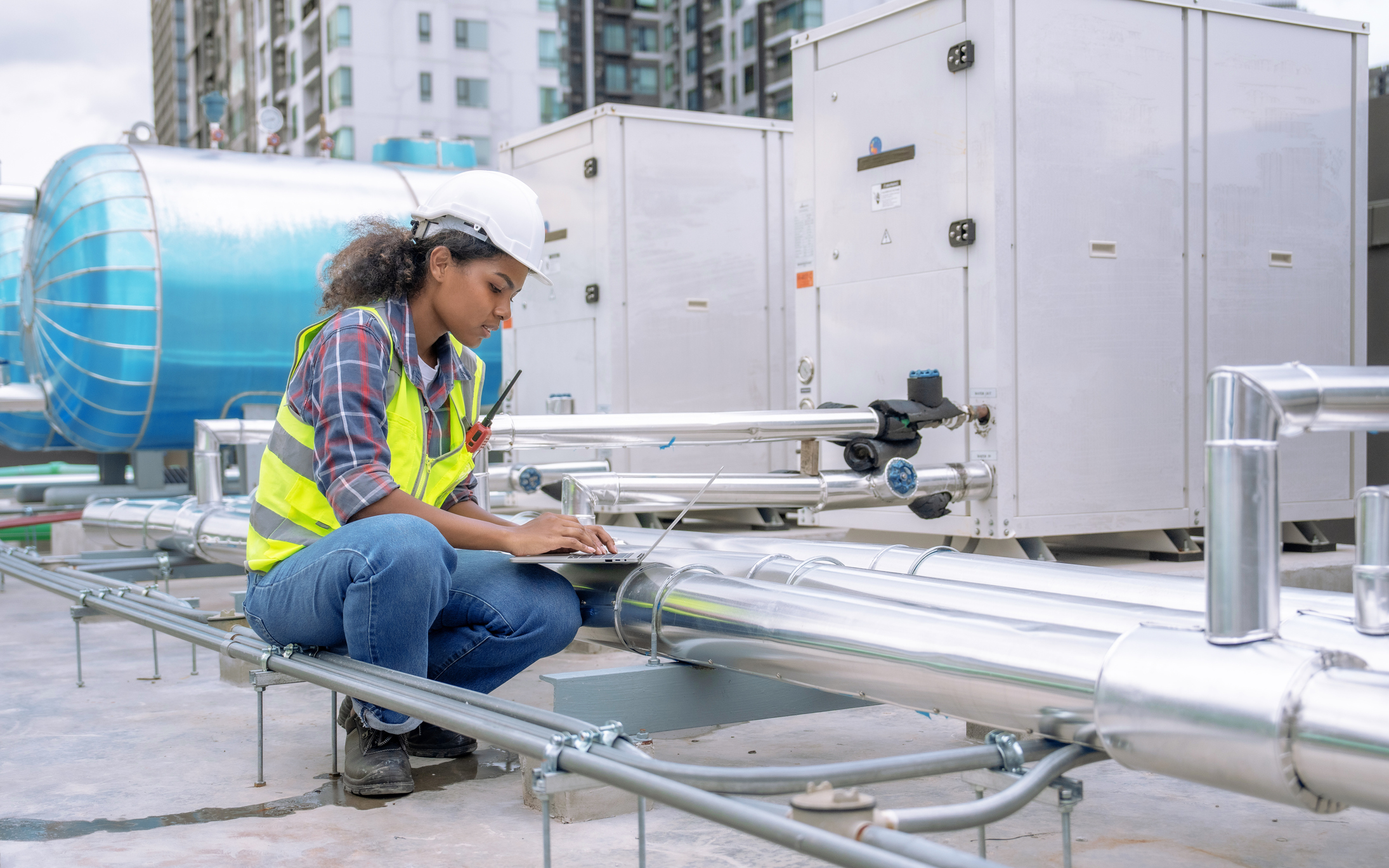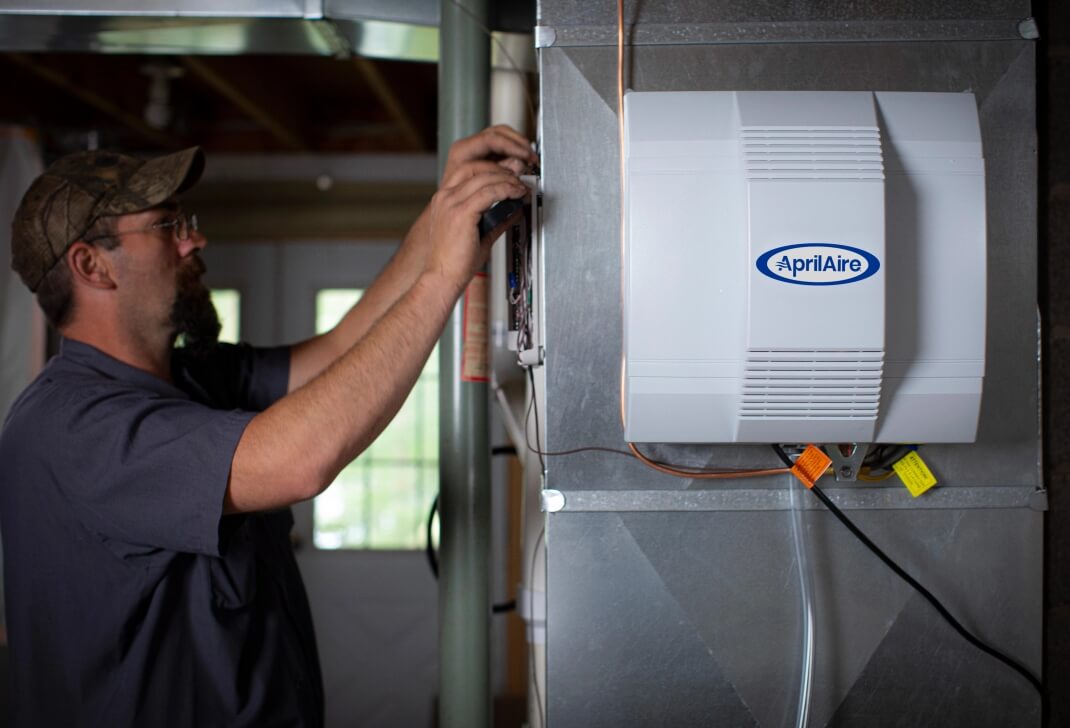Commercial HVAC Contractor Providing Professional Heating & Cooling Solutions
Commercial HVAC Contractor Providing Professional Heating & Cooling Solutions
Blog Article
A Comprehensive Check Out Heating And Cooling Solutions and Their Influence on Power Efficiency and Expense Financial Savings
The role of heating and cooling solutions in enhancing power effectiveness and attaining cost savings is more critical than ever, as property owners and companies look for sustainable solutions in a significantly eco-conscious world. With technological developments like smart thermostats and high-efficiency components, the capacity for maximizing system performance is huge. Yet, truth influence of these innovations depends mainly on regular maintenance and proactive concern management. As we explore the complex partnership in between HVAC systems and operational costs, including the shift towards eco-friendly choices, the concern arises: just how can these approaches be effectively carried out to optimize both financial and environmental benefits?

Significance of A/c Equipments
a/c systems are a vital element of contemporary buildings, playing a vital duty in preserving comfy and healthy interior environments. These systems, encompassing home heating, ventilation, and air conditioning, are necessary for regulating temperature level, moisture, and air quality, therefore making sure the wellness of occupants. Efficient HVAC systems contribute substantially to creating an optimum interior environment, which is crucial for both property and industrial areas.
In commercial structures, a/c systems are important to supplying a productive and secure atmosphere. By managing interior environment problems, these systems help prevent the growth of mold and the spread of airborne impurities, hence guarding the health of customers and employees. Additionally, in property setups, heating and cooling systems enhance living problems by offering regular thermal comfort and boosting indoor air top quality, which is crucial for general health.
In addition, the layout and maintenance of cooling and heating systems have a straight effect on energy consumption and functional costs. Appropriately made and preserved systems can considerably decrease energy usage, bring about reduced energy expenses and a smaller carbon footprint. The performance of these systems therefore plays an important function in advertising sustainability and power preservation within structures, highlighting their value in the contemporary building landscape.
Developments in Cooling And Heating Modern Technology
Development in HVAC modern technology is revolutionizing the means buildings manage indoor environments, introducing a brand-new era of efficiency and control. Recent developments have actually concentrated on maximizing energy consumption while enhancing individual comfort. One notable advancement is the integration of clever thermostats, which use expert system to find out occupancy patterns and readjust temperatures appropriately, minimizing unneeded power usage.
Variable Refrigerant Flow (VRF) systems represent one more considerable jump forward. These systems allow for specific temperature control in different areas of a structure, improving convenience and minimizing energy waste. VRF modern technology is especially advantageous for big business areas, supplying adaptability and scalability.
In addition, the arrival of Internet of Things (IoT) devices has changed HVAC systems into interconnected networks efficient in real-time data collection and analysis. This connectivity allows anticipating upkeep, ensuring systems operate at peak performance and decreasing unforeseen downtime.
Additionally, developments in materials and style, such as using high-efficiency coils and compressors, have improved general system performance - Heating Contractor. The fostering of ecologically friendly refrigerants likewise underscores the sector's dedication to sustainability
These technological developments are essential in lowering functional expenses and ecological impact, setting brand-new requirements for building environment administration.
A/c Upkeep and Efficiency
Making sure ideal efficiency of HVAC systems prolongs past technological innovations; it likewise depends upon effective maintenance practices. Routine maintenance is essential for sustaining efficiency, lowering power intake, and extending the life expectancy of HVAC systems. The key objective is to make sure that all parts operate at their peak potential, thus decreasing power wastefulness and maintaining constant interior convenience degrees.
Regular upkeep jobs, such as cleaning or replacing air filters, examining refrigerant levels, and evaluating ductwork for leaks, are necessary for stopping unnecessary pressure on the system. Filthy or clogged filters can obstruct air movement, causing the system to work more challenging and eat even more power. Similarly, insufficient cooling agent levels can decrease cooling down efficiency, bring about greater functional prices.
Furthermore, regular inspections by certified professionals can determine prospective problems prior to they rise right into pricey repair services or system failures. These examinations typically consist of checking electric links, adjusting thermostats, and ensuring the overall integrity of the a/c system. By addressing small troubles early, businesses and property owners can stay clear of unforeseen break downs and boost power performance.
Economical A/c Solutions
For those wanting to obtain the most out of their heating, air, and air flow conditioning systems without damaging the financial institution, exploring cost-effective HVAC services can click now make a considerable difference. One instant measure is to purchase programmable thermostats, which allow individuals to set certain temperatures for various times of the day, optimizing energy usage and reducing unnecessary usage. By automating temperature changes, house owners can achieve considerable cost savings on energy costs.
Routine maintenance is an additional vital element of economical a/c management. Making certain that filters are cleaned up or changed routinely, ductwork is secured, and units are serviced by specialists can protect against expensive repair work and enhance system durability. Preventative upkeep not just keeps system performance but also aids in avoiding unexpected breakdowns that can result in pricey emergency repair services.
In addition, retrofitting existing systems with energy-efficient components, such as variable speed electric motors or high-efficiency compressors, can be a sensible investment. These upgrades enhance operational efficiency, decrease energy use, and can often be executed at a fraction of the cost of a complete system substitute.
Environmental Effect Decrease
Decreasing the environmental effect of heating and cooling systems is essential in today's search of lasting living. Heating and cooling systems are considerable factors to energy intake, representing nearly 40% of power usage in business structures. This energy need usually depends on fossil fuels, bring about greenhouse gas emissions and ecological deterioration. Transitioning to a lot more reliable systems, such as those using renewable resource sources, can considerably alleviate these influences.
Technological advancements in a/c mechanical services style and procedure, consisting of the integration of clever thermostats and energy-efficient heatpump, are crucial in decreasing carbon impacts. These innovations allow for enhanced power usage, minimizing wastefulness and improving total system performance. Additionally, embracing regular maintenance techniques makes certain a/c systems run at peak effectiveness, further cutting unneeded energy usage.
Furthermore, the usage of eco-friendly cooling agents is vital, as conventional refrigerants, like CFCs and HCFCs, have been terminated because of their ozone-depleting residential properties. Modern choices, such as hydrofluoroolefins (HFOs), offer decreased ecological dangers, aligning with international ecological procedures. By embracing these sustainable techniques, cooling and heating solutions can play a transformative duty in lowering ecological effects, advertising energy efficiency, and fostering a more lasting future.
Conclusion

In addition, the design and upkeep of HVAC systems have a direct impact on energy usage and functional prices. Routine upkeep is critical for Get the facts sustaining efficiency, minimizing power usage, and expanding the life span of Heating and cooling systems. Cooling and heating systems are significant factors to energy intake, accounting for almost 40% of power use in industrial buildings. Furthermore, adopting routine upkeep methods makes certain A/c systems run at peak efficiency, more stopping unneeded energy consumption.
The shift to eco pleasant HVAC systems additionally advertises and minimizes functional costs sustainability. (Heating Contractor)
Report this page